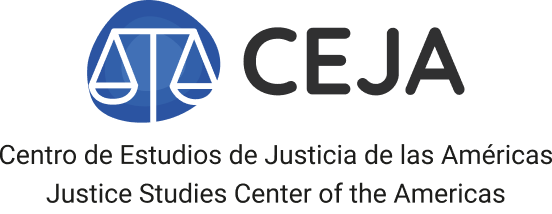One of the study’s objectives is to offer an overview of training and oversight of the practice of law in order to identify the main critiques that have been offered in Latin America and the Caribbean.
In an effort to explore the most important aspects of the practice of law, the Justice Studies Center of the Americas has published the report “The Practice of Law in Latin America: In Search of an Agenda.” The study was conducted in the context of the project “Improving Access to Civil Justice in Latin America” in collaboration with Global Affairs Canada (GAC).
The report is the result of empirical research focused on the assessment of two of the most crucial aspects in the practice of law in Latin American societies: university training provided to law students and oversight of attorneys in private practice.
This is JSCA’s first publication on the topic. It is designed to generate a focal point for discussion of the responsibilities of professional groups, universities, and States in determining the standards that must be met by those who practice law and identifying the type of professionals that society needs to achieve its legitimate goals.
The prologue was written by Alberto Binder, who offers an empirical research proposal on the topic and establishes the most critical areas to consider in the practice of law in contemporary Latin American societies.
“Other than common topics such as the impact of technology -or now the pandemic-, the hypothesis is that we do not have a tradition of projecting society’s legal needs. As such, we do not know a lot about the sort of attorney that that society needs,” Binder states.
JSCA Research and Projects Director Marco Fandiño writes that the role of attorneys should not only be to contribute to maintaining social peace by promoting the use of adequate dispute resolution methods and that they should also engage in the ethical and responsible exercise of judicial actions within the judicial system.
“The idea that the interests of attorneys cannot be on the same side as meeting community interests is highly damaging and problematic,” Fandiño notes.
Contents
The document addresses important topics such as the admission of women to law programs as one of the most important changes that university and legal education and the practice of law in the region underwent in the 20th century.
It also analyzes how the issue of gender has been incorporated into legal training. JSCA’s research (2020) on a sample of universities in Bolivia, Chile, Costa Rica, Guatemala, and Mexico reveals the limited presence of initiatives aimed at incorporating the issue of gender into legal training as well as the minimal presence of courses on at-risk groups in course curricula.
Professional Oversight
In regard to professional oversight, JSCA (2020) has identified three situations related to the practice of law. In Guatemala and Costa Rica, for example, the regulation of the profession has been delegated to professional associations, which have a legal text that justifies mandatory membership.
In Bolivia, for its part, the decision has been made not to delegate that control. Important aspects of legal practice are regulated by law and a government entity has been created for this purpose within the Ministry of Justice. Chile’s situation is similar, though in this case no regulations have been passed on the practice of law, perpetuating the application of temporary disciplinary codes and procedures. Mexico does not have regulations in place in this area.
Download the text here
